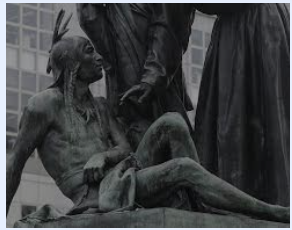AFFECT OR EFFECT?
Both of these words are verbs and nouns and their meanings overlap. This can be confusing to those whose first language is English. It can be baffling to those whose first language is one other than English.
Here is a basic guideline for affect or effect that can help clarify how to use the two words correctly:
Generally, we use affect as a verb (an action word) and effect as a noun (an object word).
WHAT DOES AFFECT MEAN?
The verb affect(opens in a new tab) means “to act on; produce a change in” as in,
“The cold weather affected the crops.”
(The cold weather produced a change in the crops.)
The verb affect can also mean “to impress the mind or move the feelings of,” as in
“The music deeply affected him.” (The music changed his feelings or thoughts).
If you can substitute affect with another verb, you are using the right word:
“The cold weather damaged the crop.” “The music deeply moved him.”
So, when you want to use a word to express a change or to describe an action, choose affect.
***************************************************************WHAT DOES EFFECT MEAN?
Effect(opens in a new tab) is most commonly used as a noun, meaning “result” or “consequence.” One way to decide if effect is the correct word to use is to replace it with another noun.
For example, “His sunburn was an effect of exposure to the sun.” Another way to say it is, “His sunburn was a result of exposure to the sun.”
HOW TO REMEMBER THE DIFFERENCE BETWEEN AFFECT AND EFFECT
There is one trick to help you use the right word in almost every case: the word RAVEN:
R = Remember
A = Affect is a
V = Verb
E = Effect is a
N = Noun
tips and examples.
AFFECT
Affect is almost always used as a verb to mean to influence someone or something, rather than to cause something.
- How does one’s personality affect success on the job?
- These weather conditions will affect the number of people who will come to the outdoor concert.
*Affect can be used as a noun in one particular situation: when referring to a display of emotion.
- The young man's facial expressions had a humorous affect.
- Georgette took the news of her company moving to Chicago with little affect.
EFFECT
Effect is most often used as a noun. It points toward an event or a thing. It is often used when an end result is being discussed.
- What effect did the schedule of games have on the team?
- Did his retirement have any effect on his family?
Effect can follow these words: the, any, an, into, on, take, or. (Affect cannot!)
- The prescribed medication had an effect on the patient's symptoms.
- We have to give the changes time to take effect.
BUT: Effect can be used as a verb in one particular situation. It can be used to mean to accomplish something or to cause something to happen.
- The new manager is bound to effect positive changes in the office.
- All this rain will effect a great harvest.
AFFECT AND EFFECT IN SENTENCES
Here are some affect or effect example sentences for an even clearer picture of the difference between the two words and how they are used.
Using affect in a sentence(opens in a new tab):
- An early frost in Florida can affect the orange crop negatively.
- Smoking tobacco can adversely affect your lungs and blood flow.
- Hugs can affect a person's immune system in a positive way.
- How much a student studies will affect his or her grade point average
- My first-grade teacher affected my self-image and helped me believe in myself.
Using effect in a sentence(opens in a new tab):
- The new law prohibiting texting while driving will go into effect tomorrow.
- A dark paint color will have the effect of making the room seem smaller.
- The special effects in movies today are aided by computers.
- News broadcasts can have a huge effect on public opinion.
- A good night's sleep has a positive effect on your day.
_____________________________________________________________
YOUR TURN
Class handoout / copy below
If you are absent, please copy and paste onto a google doc and share with me. don't forget to give me permission to view this. dorothy.parker@rcsdk12.org
Affect / Effect - Write the correct word at the beginning of the sentence
_____________________1. I will try not to let his words (affect effect ) me.
_____________________2. Bridge washouts are often an (affect effect ) of floods.
_____________________3. He tried in vain to (affect effect ) a different opinion in the crowd.
_____________________4. Jim was seriously (affect effect ) by his cousin's death.
_____________________5. Weather conditions (affect effect ) many people's moods.
_____________________6. Did the committee's vote (affect effect ) your position on the matter?
_____________________7. Crossing wire A to wire B will produce an explosive
(affect effect ) .
_____________________8. The major (affect
effect ) of the storm was devastation everywhere.
_____________________9. The politician wanted to (affect effect ) a change in the system.
_____________________10. That terrible accident had a profound (affect effect ) on my driving.
_____________________11. The (affect effect) of the antibiotic on her infection was surprising.
_____________________12. I did not know that antibiotics could (effect affect) people so quickly)
_____________________13. The doctor observed the patient's gloomy (effect affect).
_____________________14. To have the most (effect affect), you should know both your strength and your weaknesses.
_____________________15. The net (effect affect) of blowing the whistle on her boss was her getting
his job.
_____________________16. His years of smoking heavily (effected affected) his health.
_____________________17. We might never know the full (effect affect) of radiation leak.
_____________________18. Supply and demand have a direct (effect affect) on commodities.
_____________________19. The early frost will (effect affect) the crops
_____________________20. Wars (effect affect) everybody, and their destructive (effects affects)
last for generations.










